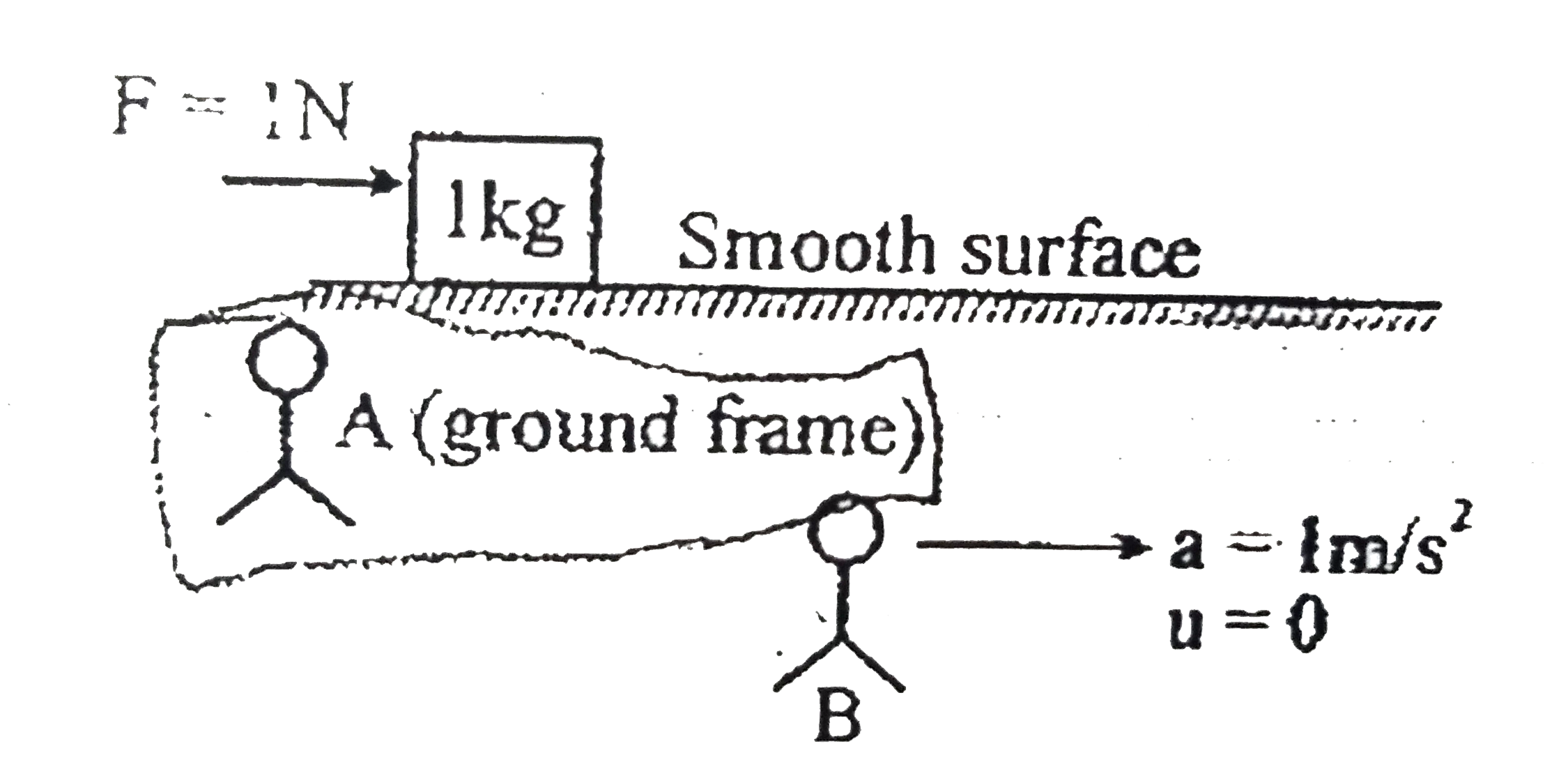A particle is found to be at rest when seen from a frame S1 and moving with a constant velocity when seen from another frame S2. Select the possible options :
Both the frames re inertial
Both the frames are noninertial
S1 is inertial and S2 is noninertial
S1 is noninertial and S2 is inertial.
The correct Answer is:A, B
Step by step video, text & image solution for A particle is found to be at rest when seen from a frame S_(1) and moving with a constant velocity when seen from another frame S_(2). Select the possible options : by Physics experts to help you in doubts & scoring excellent marks in Class 11 exams.
Updated on:21/07/2023Topper's Solved these Questions
- NEWTON'S LAWS OF MOTIONBOOK - HC VERMACHAPTER - NEWTON'S LAWS OF MOTIONEXERCISE - Exercises
42 Videos
- NEWTON'S LAWS OF MOTIONBOOK - HC VERMACHAPTER - NEWTON'S LAWS OF MOTIONEXERCISE - Objective 1
14 Videos
- LAWS OF THERMODYNAMICSBOOK - HC VERMACHAPTER - LAWS OF THERMODYNAMICSEXERCISE - Short Answer
15 Videos
- PHYSICS AND MATHEMATICSBOOK - HC VERMACHAPTER - PHYSICS AND MATHEMATICSEXERCISE - Exercises
34 Videos
Similar Questions
A 100 kg block is started with a speed of 2.0ms−1 on a long, rough belt kept fixed in a horizontal position. The coefficient of kinetic friction between the block and the belt is 0.20. (a) calculate the change in the internal energy of the block=-belt system as the block comes to a stop on the belt. (b) consider the sutuation from a frame of reference moving at 2.0ms−1 along the initial velocity of the block. as seen from this frame, the block is gently put on a moving belt and in due time the block starts moving with the belt at 2.0ms−1, calculate the increase in the kinetic energy of the block as it stops slipping past the belt. (c ) find the work done in this frame by the external force holding the belt.
View SolutionThe accleration of a particle as seen from two frames S1 and S2 have equal magnitudes 4 m/s2
View Solution
Knowledge Check
Statement I: A particle is found to be a rest when seen from a frame S1 and moving with a constant velocity when seen from another frame S2. We can say both the frames are inertial.
Statement II: All frames moving uniformly with respect to an inertial frame are themselves inertial.AStatement I is true, statement II is true, Statement II is the correct explanation for statement I.BStatemet I is true, Statement II is true , Statement II is NOT the correct explanation for Statement ICStatement I is True, Statement II is False.DStatement I is False, Statement II is trueAssertion:− A particle on earth found to be at rest when seen from a frame U1 and moving with a constant velocity when seen from another frame U2. Then both frames may be non−inertial.
Reason :− A reference frame attached to the earth must be an inertial frame.AIf both Assertion & Reason are True & the Reason is a correct explanation of the Assertion.BIf both Assertion & Reason are True but Reason is not a correct explanation of the Assertiion.CIf Assertion is True but the Reason is False.DIf both Assertion & Reason are FalseA particle stays at rest as seen in a frame. We can concude that :
AResultant force on the particle is zeroBThe frame may be inertial but the resultant force on the particle is zeroCThe frame is inertialDThe frame may be non-inertial but there is a non-zero resultant force
A particle moves along the x' axis of frame S' with velocity 0.50c. Frame S' moves with velocity 0.80c with respect to frame S. What is the velocity of the particle with respect to frame S?
View SolutionA particle starts from rest and moves with constant acceleration. Then velocity displacement curve is:
View SolutionA particle stays at rest as seen in frame. Then which of the following statement is/are TRUE ?
View SolutionA particle is observed from two frames S1andS2. The frame S2 moves with respect to S1 with an acceleration a. Let F1andF2 be the pseudo forces on the particle when seen from S1andS2 respectively. Which of the following are not possible ?
View SolutionAn observer A is at rest in gournd frame, observer B is moving with constant another observer C is moving with constant velocity of 1m/s.

View Solution
